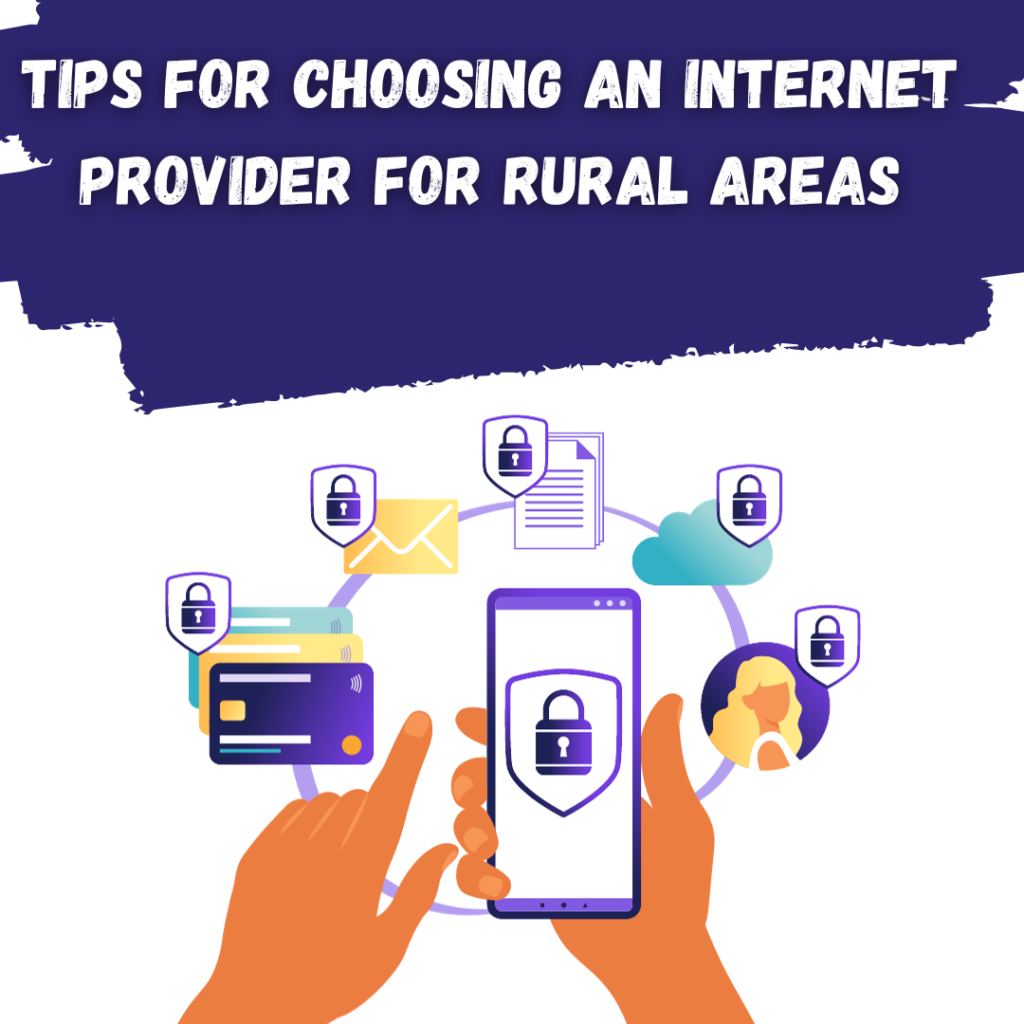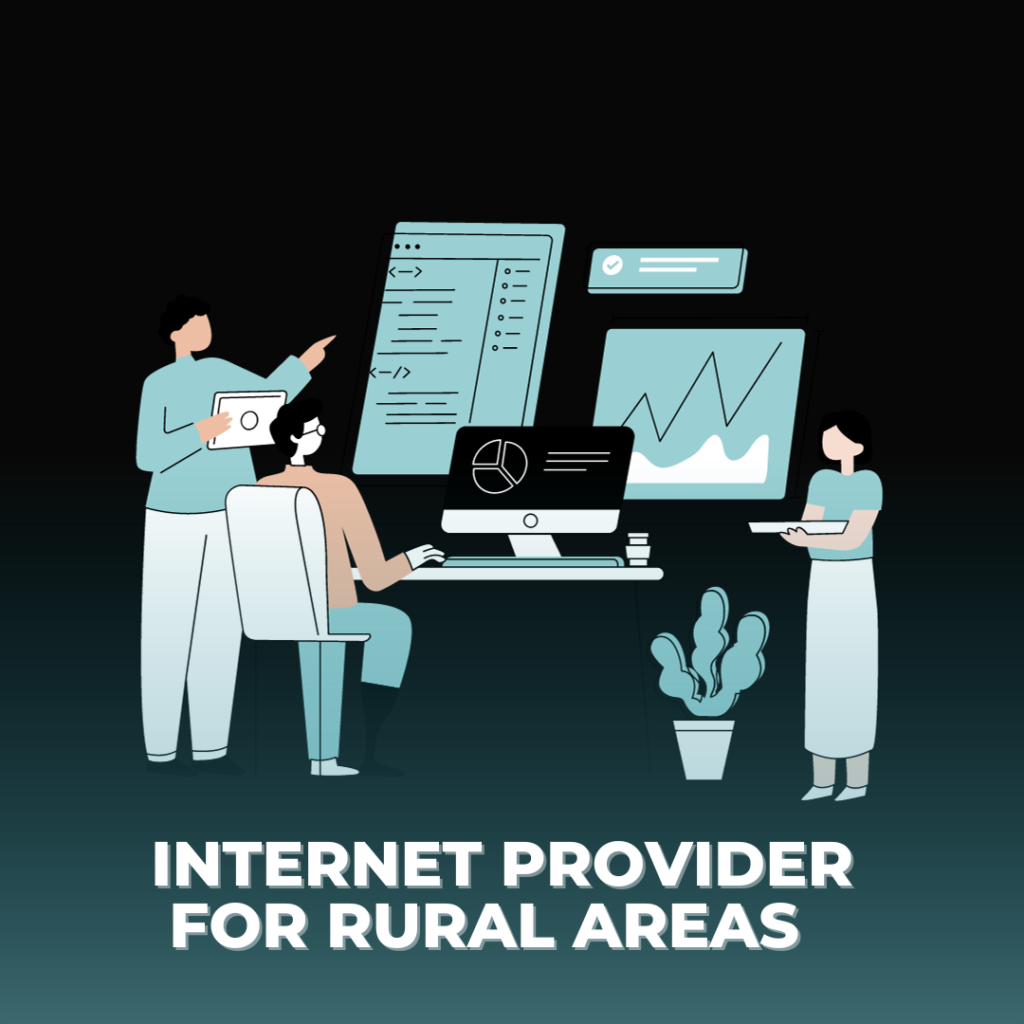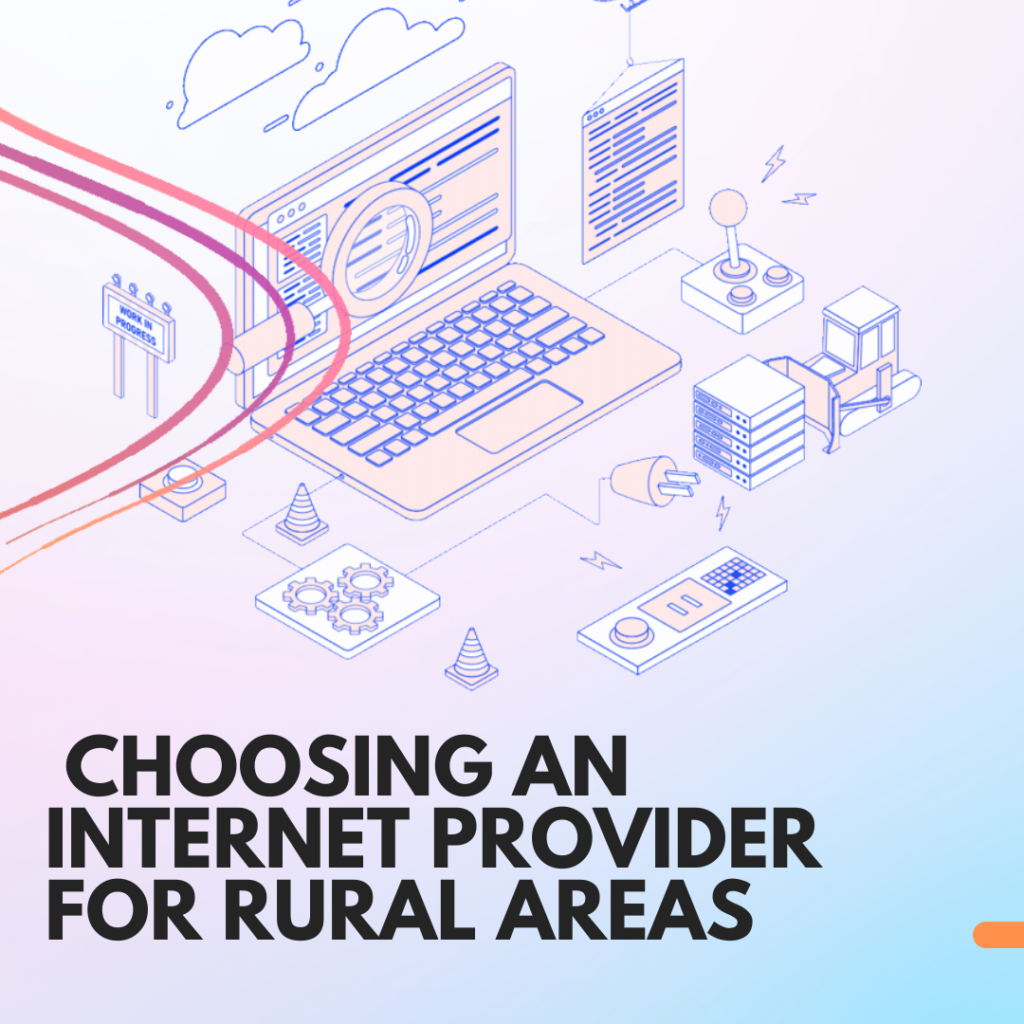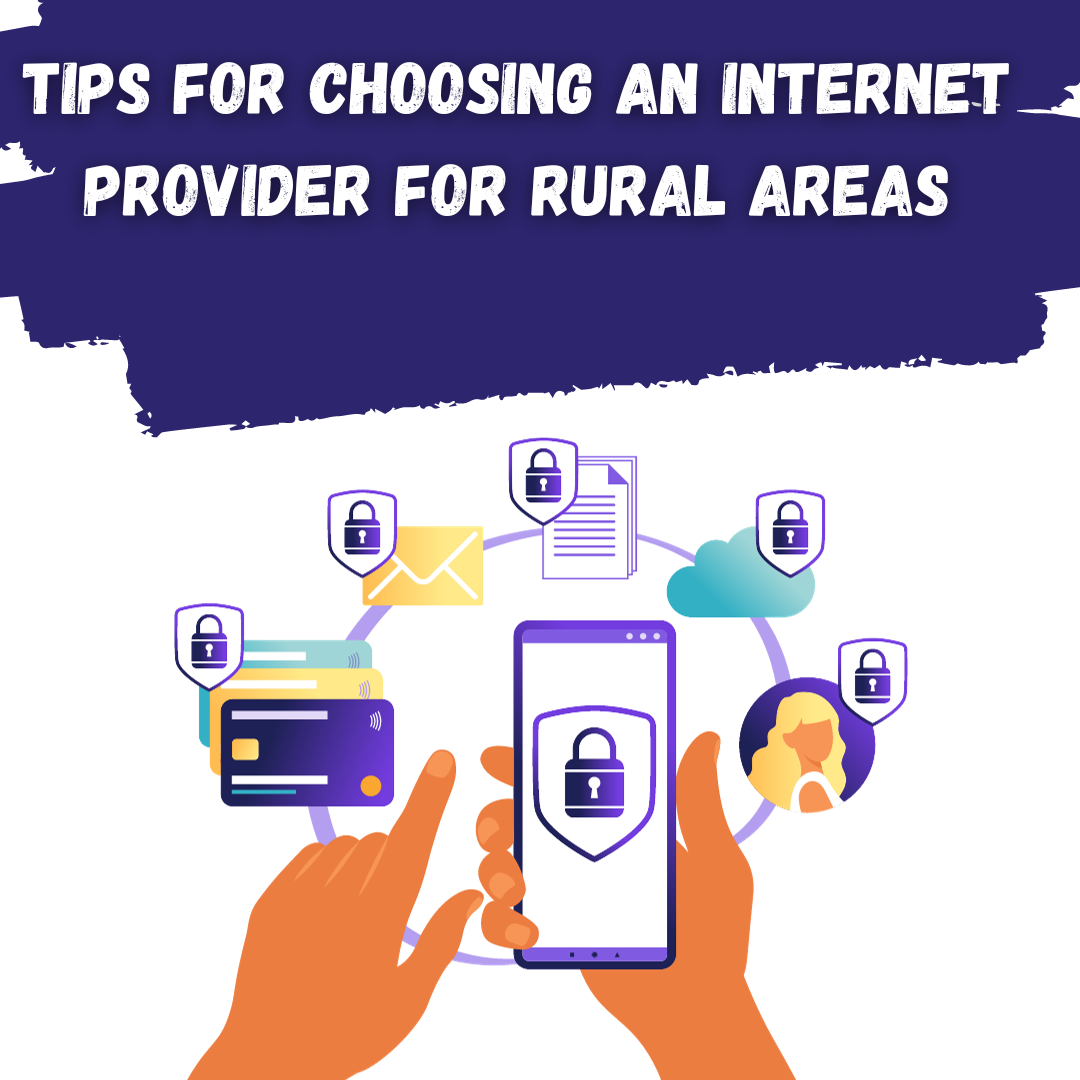Introduction

It doesn’t matter where you reside; having access to fast and dependable internet is vital in today’s interconnected world. However, people living in more remote locations may need help locating an adequate internet service provider. Choosing wisely is especially crucial in rural places where there may be fewer alternatives available than in more densely populated areas. In this article, tips for choosing an internet provider for rural areas
Determine Your Needs:
When looking for an internet service provider in a rural place, the first thing you should do is figure out what you need. Think about how many devices you have in your home, how often you use the internet, and what you do online. A slower plan might be enough if all you do online is send letters and browse the web. But if you stream movies, play games online, or work from home a lot, you’ll need a faster and more reliable connection.
Research Available Providers:
There may be few internet service companies (ISPs) in rural places. First, find out more about the service providers in your area. Find out about the available ISPs by asking your friends, reading online sites, and looking through local phone books. To compare what different companies have to offer, make a list of them.
Connection Types:

There may be a range of internet link types available in rural places. These are the most popular choices:
- DSL: A digital subscriber line is transmitted through telephone lines and is widely available in rural areas.
- Satellite: This choice uses satellite data and can be used even in remote areas, but it may cost more.
- Fixed Wireless: Radio waves are used by fixed wireless ISPs to provide internet service. It can be used in places where you can see a tower.
- Fiber-optic: Fiber-optic internet is the fastest and most secure choice if it’s available. However, it’s less common in rural places.
Think about the good and bad points of each link type and pick the one that works best for you and where you are.
Speed and consistency:

Speed and reliability vary a lot in rural places, so it’s essential to find out how well the ISP you’re thinking about actually works. Find out about the upload and download speeds, as well as any rules on data caps or slowing down. Check out customer reviews to understand how reliable the service company is in your area.
Costs of Setup and Equipment:
As for whether the service comes with any setup or equipment fees, find out. Some companies may charge extra, while others may offer free setup or include modems and routers you need. When making a choice, it’s essential to think about these costs.
Terms of Contract:
Read over the service terms, the length of the contract, and any fees for giving up the service. A lot of ISPs let you choose between contracts and no contracts. Try a no-contract plan first to see how good the service is before committing to a longer-term plan if you need clarification on the long-term commitment.
Customer Support:
It’s essential to have reliable customer service, especially in rural places where technology problems can take longer to fix because of the distance. Read reviews and find out how well the provider’s customer service is known. Support that is quick to respond and helpful can make a big difference in how you use the internet.
Service bundles:
There are some internet service providers (ISPs) that combine services like internet with TV and phone. Consider whether you need these extra services and whether combining them could save money.
Local Suggestions:
Getting suggestions and comments from people in your area can be very helpful. In a rural place, they can inform you about how a particular internet service works in the real world.
Conclusion
To find the best internet service provider for rural places, you need to think about your wants carefully, the choices you have, and how reliable the service is. Take your time to learn about and compare service providers, ask for advice, and think about the pros and cons of each type of link. With these tips, you can find an internet service company that meets your needs and keeps you connected from your country home.
